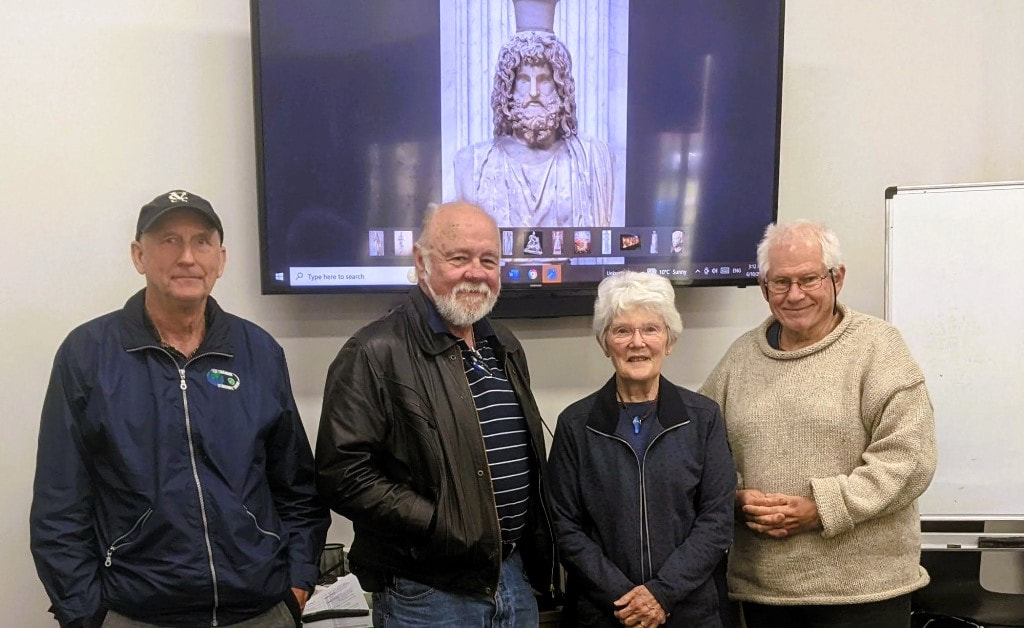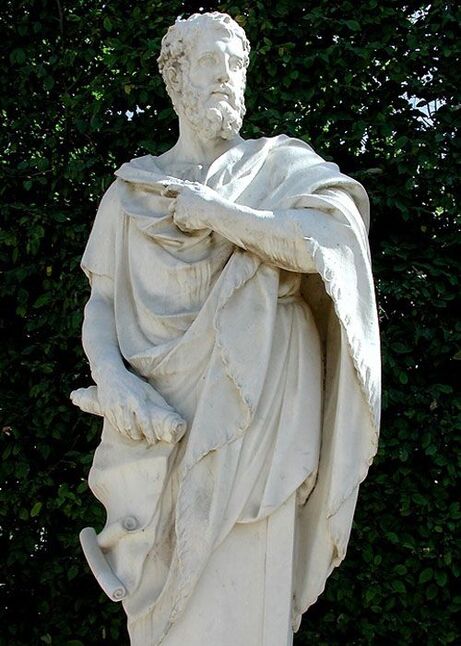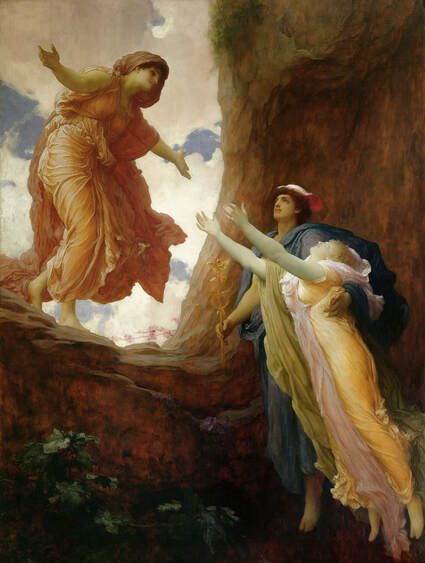In the Odyssey, the underworld was a place of darkness where the shades of the dead wandered unconscious and unknowing. To revive them so Odysseus could talk with them, he had to feed them a libation or offering of blood and milk.
The Asphodel Meadows was where the majority of the dead dwelled. Nearby were the Fields of Dreams whence came dreams, true and false, that haunt men’s sleep. Once judged by the underworld gods, especially distinguished individuals and heroes could be sent to Elysium or the Elysian Fields. This was a paradisiacal afterlife. Elysium was where Aeneas found the shade of his father, Anchises.
Although the early writers like Hesiod and Homer knew of the Isles of the Blessed, over time, and under the influence of the mystery religions, the islands were reserved for those who had chosen to be reincarnated three times, who managed to be judged as especially pure enough to gain entrance to the Elysian Fields all three times.
Sadly, I did not have a class for my intended tour of the underworld. I presume that the pressure of Christmas events claimed their attention.
John Barry





 RSS Feed
RSS Feed
